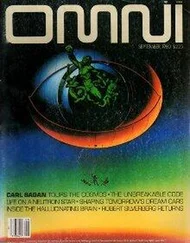Robert Silverberg - We Are for the Dark
Здесь есть возможность читать онлайн «Robert Silverberg - We Are for the Dark» весь текст электронной книги совершенно бесплатно (целиком полную версию без сокращений). В некоторых случаях можно слушать аудио, скачать через торрент в формате fb2 и присутствует краткое содержание. Год выпуска: 2014, ISBN: 2014, Издательство: Subterranean Press, Жанр: Фантастика и фэнтези, на английском языке. Описание произведения, (предисловие) а так же отзывы посетителей доступны на портале библиотеки ЛибКат.
- Название:We Are for the Dark
- Автор:
- Издательство:Subterranean Press
- Жанр:
- Год:2014
- ISBN:978-1-59606-693-9
- Рейтинг книги:3 / 5. Голосов: 1
-
Избранное:Добавить в избранное
- Отзывы:
-
Ваша оценка:
- 60
- 1
- 2
- 3
- 4
- 5
We Are for the Dark: краткое содержание, описание и аннотация
Предлагаем к чтению аннотацию, описание, краткое содержание или предисловие (зависит от того, что написал сам автор книги «We Are for the Dark»). Если вы не нашли необходимую информацию о книге — напишите в комментариях, мы постараемся отыскать её.
We Are for the Dark — читать онлайн бесплатно полную книгу (весь текст) целиком
Ниже представлен текст книги, разбитый по страницам. Система сохранения места последней прочитанной страницы, позволяет с удобством читать онлайн бесплатно книгу «We Are for the Dark», без необходимости каждый раз заново искать на чём Вы остановились. Поставьте закладку, и сможете в любой момент перейти на страницу, на которой закончили чтение.
Интервал:
Закладка:
I see the little girl at the edge of the circle, the one whom I had taken, for a strange instant, to be my daughter. Once again I smile at her. Once again she gives me a solemn stare, and edges away. There is laughter. “She means no disrespect,” a woman says. “Shall I bring her to you, your grace?” I shake my head. “I must frighten her,” I say. “Let her be.” But the girl’s stare remains to haunt me, and I see snow about me once more, thickening in the sky, covering the lush gardens of the Sanctuary, spreading to the rim of the world and beyond.
In the observatory they hand me a polarizing helmet to protect my eyes. The data flux is an overpowering sight: hot pulsing flares, like throbbing suns. I catch just a glimpse of it while still in the vestibule. The world, which has thawed for me, turns to snow yet again. It is a total white-out, a flash of photospheric intensity that washes away all surfaces and dechromatizes the universe.
“This way, your grace. Let me assist you.”
Soft voices. Solicitous proximity. To them, I suppose, I am an old man. Yet the Master was old before I was born. Does he ever come here?
I hear them whispering: “The Lord Magistrate—the Lord Magistrate—”
The observatory, which I have never seen before, is one huge room, an eight-sided building as big as a cathedral, very dark and shadowy within, massive walls of some smooth moist-looking greenish stone, vaulted roof of burnished red metal, actually not a roof at all but an intricate antenna of colossal size and complexity, winding round and round and round upon itself. Spidery catwalks run everywhere to link the various areas of the great room. There is no telescope. This is not that sort of observatory. This is the central gathering-point for three rings of data-collectors, one on the Moon, one somewhere beyond the orbit of Jupiter, one eight light-years away on a world of the star Lalande 21185. They scan the heavens and pump a stream of binary digits toward this building, where the data arrives in awesome convulsive actinic spurts, like thunderbolts hurled from Olympus.
There is another wall-sized map of the Mission here, the same sort of device that I saw in the Master’s office, but at least five times as large. It too displays the network of the inner stars illuminated in bright yellow lines. But it is the old pattern, the familiar one, the one we have worked with since the inception of the program. This screen shows none of the wild divagations and bizarre trajectories that marked the image the Master showed me in my last audience with him.
“The system’s been down for four days,” a voice at my elbow murmurs: one of the astronomers, a young one, who evidently has been assigned to me. She is dark-haired, snub-nosed, bright-eyed, a pleasant-faced girl. “We’re just priming it now, bringing it up to realtime level. That’s why the flares are so intense. There’s a terrific mass of data backed up in the system and it’s all trying to get in here at once.”
“I see.”
She smiles. “If you’ll move this way, your grace—”
She guides me toward an inner balcony that hangs suspended over a well-like pit perhaps a hundred meters deep. In the dimness far below I see metal arms weaving in slow patterns, great gleaming disks turning rapidly, mirrors blinking and flashing. My astronomer explains that this is the main focal limb, or some such thing, but the details are lost on me. The whole building is quivering and trembling here, as though it is being pounded by a giant’s hand. Colors are changing: the spectrum is being tugged far off to one side. Gripping the rail of the balcony, I feel a terrible vertigo coming over me. It seems to me that the expansion of the universe has suddenly been reversed, that all the galaxies are converging on this point, that I am standing in a vortex where floods of ultraviolet light, x-rays, and gamma rays come rushing in from all points of the cosmos at once. “Do you notice it?” I hear myself asking. “The violet-shift? Everything running backwards toward the center?”
“What’s that, your grace?”
I am muttering incoherently. She has not understood a word, thank God! I see her staring at me, worried, perhaps shocked. But I pull myself together, I smile, I manage to offer a few rational-sounding questions. She grows calm. Making allowances for my age, perhaps, and for my ignorance of all that goes on in this building. I have my own area of technical competence, she knows—oh, yes, she certainly knows that!—but she realizes that it is quite different from hers.
From my vantage point overlooking the main focal limb I watch with more awe than comprehension as the data pours in, is refined and clarified, is analyzed, is synthesized, is registered on the various display units arrayed on the walls of the observatory. The young woman at my side keeps up a steady whispered flow of commentary, but I am distracted by the terrifying patterns of light and shadow all about me, by sudden and unpredictable bursts of high-pitched sound, by the vibrations of the building, and I miss some of the critical steps in her explanations and rapidly find myself lost. In truth I understand almost nothing of what is taking place around me. No doubt it is significant. The place is crowded with members of the Order, and high ones at that, everyone at least an initiate, several wearing the armbands of the inner levels of the primary House, the red, the green, even a few amber. Lord Invocator Kastel is here, smiling smugly, embracing people like a politician, coming by more than once to make sure I appreciate the high drama of this great room. I nod, I smile, I assure him of my gratitude.
Indeed it is dramatic. Now that I have recovered from my vertigo I find myself looking outward rather than down, and my senses ride heavenward as though I myself am traveling to the stars.
This is the nerve-center of our Mission, this is the grand sensorium by which we keep track of our achievement.
The Alpha Centauri system was the starting-point, of course, when we first began seeding the stars with Velde receivers, and then Barnard’s Star, Wolf 359, Lalande 21185, and so on outward and outward, Sirius, Ross 154, Epsilon Indi—who does not know the names?—to all the stars within a dozen light-years of Earth. Small unmanned starships, laser-powered robot drones, unfurling great lightsails and gliding starward on the urgent breath of photonic winds that we ourselves stirred up. Light was their propulsive force, and its steady pressure afforded constant acceleration, swiftly stepping up the velocity of our ships until it approached that of light.
Then, as they neared the stars that were their destinations, scanning for planets by one method or another, plotting orbital deviations or homing in on infrared radiation or measuring Doppler shifts—finding worlds, and sorting them to eliminate the unlivable ones, the gas giants, the ice-balls, the formaldehyde atmospheres—
One by one our little vessels made landfall on new Earths. Silently opened their hatches. Sent forth the robots who would set up the Velde receivers that would be our gateways. One by one, opening the heavens.
And then—the second phase, the fabricating devices emerging, going to work, tiny machines seeking out carbon, silicon, nitrogen, oxygen, and the rest of the necessary building-blocks, stacking up the atoms in the predesignated patterns, assembling new starships, new laser banks, new Velde receivers. Little mechanical minds giving the orders, little mechanical arms doing the work. It would take some fifteen years for one of our ships to reach a star twelve light-years away. But it would require much less than that for our automatic replicators to construct a dozen twins of that ship at the landing point and send them in a dozen directions, each bearing its own Velde receiver to be established on some farther star, each equipped to replicate itself just as quickly and send more ships onward. Thus we built our receiver network, spreading our highway from world to world across a sphere that by His will and our choice would encompass only a hundred light-years in the beginning. Then from our transmitters based on Earth we could begin to send—instantly, miraculously—the first colonists to the new worlds within our delimited sphere.
Читать дальшеИнтервал:
Закладка:
Похожие книги на «We Are for the Dark»
Представляем Вашему вниманию похожие книги на «We Are for the Dark» списком для выбора. Мы отобрали схожую по названию и смыслу литературу в надежде предоставить читателям больше вариантов отыскать новые, интересные, ещё непрочитанные произведения.
Обсуждение, отзывы о книге «We Are for the Dark» и просто собственные мнения читателей. Оставьте ваши комментарии, напишите, что Вы думаете о произведении, его смысле или главных героях. Укажите что конкретно понравилось, а что нет, и почему Вы так считаете.












